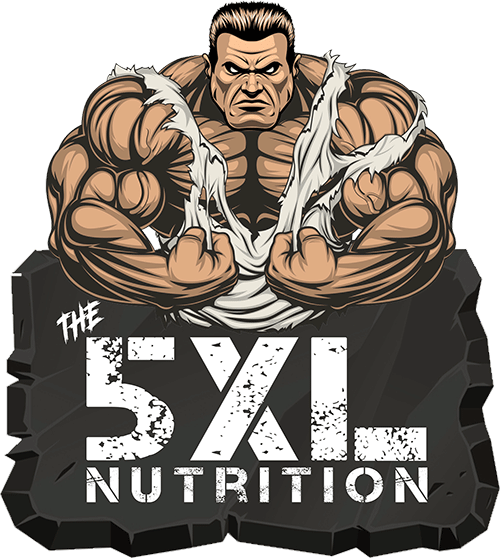Muscle Gain vs Weight Gain: What’s the Real Difference? | 5XL Nutrition
One of the most confused concepts in the world of getting the perfect body is Muscle Gain vs Weight gain. Although they both involve putting on body weight, the quality of that weight is what makes you fit, strong, and healthy. In this comprehensive guide brought to you by 5XL Nutrition, we’re going to explain the fundamental differences between weight gain and muscle gain, how to attain these effectively and which strategy is best suited for your goals.
Getting A Handle On Muscle Gain Vs Weight Gain
The muscle gain vs weight gain battle is about more than a number on the scale — it’s about what those numbers stand for.
Muscle Gain is the process of adding tissue weight via resistance training, protein-rich diet and recovery.
Weight Gain, however, can be Muscle or Fat. Just eating more calories than you are burning can cause an increase in body weight, but not necessarily transfer into muscle mass.
Here at 5XL, we focus on intelligent supplement strategy to help you gain muscle, but not body fat.

Gain in Muscle: Development of Lean and Ripped Body
If you’re looking to add muscle, you want to do it and store as little fat as possible. This process is called hypertrophy, in which your muscle fibers get stronger and thicker after being challenged by the resistance training you’ve been doing.
Key Factors for Muscle Gain
High Protein Intake:
Muscle is made of protein. Supplements such as Whey Pro are packed with the amino acids your muscles need to repair and grow.
Progressive Strength Training:
To build muscle size, you need to challenge your muscles by lifting progressively heavier weights.
Caloric Surplus with Clean Diet:
Eat just above the amount of calories you need to maintain your weight, but choose nutrient-dense foods such as lean meats, whole grains, nuts and healthy fats.
Adequate Rest and Recovery:
Muscles get built in the resting time, not when you work out. Strive to sleep 7–8 hours a night, make sure it’s quality sleep!
Bodybuilding and Increasing Muscle: How being a Wiry Kids lead to weight trainingHowever,Turning one’s attention onto bodybuilding leads to increasing your metabolism, better strength performance, great looks for wo/men with muscle tone.
Weight Gain: Gaining Weight Throughout Your Bodies
Muscle gain focuses on lean tissue, whereas weight gain refers to overall increase in body mass, which includes both muscle and fat. Many people, in particular those who have a high metabolism or are ectomorphs, find it difficult to put on weight even if they do eat more.
Factors That Affect Weight Gain
Calorie Surplus:
You will need to take in more calories than your body is burning. But unhealthy calorie sources like junk food will make you get fat.
Carbohydrate and Fat Intake:
Carbohydrates and fats are what supply the energy necessary to maintain your calorie surplus. But, there’s a balance so you don’t add that ugly fat as well.
Supplements for Support:
Supplements such as 5XL Nutrition Mass Gainers are targeted directly at people who struggle to put on mass naturally. They provide an ideal balance of protein, carbohydrates and essential nutrients for healthy growth.
Consistency in Meals:
Consume few but frequent meals during the day to ensure a constant nutrient supply.
Unlike muscle gain, it didn’t mean you were going to get stronger or more sculpted. This is important to realize when comparing muscle gain vs weight gain.
Muscle Gain vs Weight Gain: The Fundamental Differences
Factors Muscle Gain Weight Gain
Change in body composition Gain lean muscle tissue Gain total mass (muscle + fat)
Type of training Strength and resistance – not so much about training
Diet Focus High-Protein, moderate carbs, healthy fats High-Calorie, mixed-Nutrient diet
Outcome Toned, slim build Bigger looking body, maybe more fat
SupplementsWhey Protein, BCAA, CreatineMass GainersCarbohydrate supplements
This contrast makes it obvious that even though both focus on gaining body mass, the purpose of muscle gain is to build strength and/or performance whereas of weight gain is to eat enough calories.
How to Pick Between Muscle Gain vs Weight Gain
It depends on if your fitness resolution is to gain muscle or weight.
If your objective is to feel stronger, look more tone, and perform better then focus on gaining some muscle.
If you are underweight or have difficulty maintaining it, start out with a healthy weight gain plan and then move on to building muscle.
At 5XL Nutrition, our sports supplements are designed by the professionals with one goal in mind – offering support to both of these goals! Whether you want to build lean muscle or add overall mass, our innovative product line provides high quality nutrition for visible growth.
Best Supplements for Muscle Building and Weight Gain
For Muscle Gain:
5XL Nutrition Whey Protein : Recover and grow stronger muscles.
5XL BCAA + Glutamine: Reduces muscle fatigue and increases endurance.
5XL Creatine Monohydrate: Increase power, performance and lean mass.
For Weight Gain:
5XL Nutrition Mass Gainer: Fast acting, weight-gain for those looking to increase body mass.
5XL Omega 3 and Multivitamins: Body Recomposition Health Support while in Calorie Surplus.
You are able to combine these supplements along with a clean diet and a good workout plan you will find the best muscle gain vs weight gain ratio.
Final Verdict: Muscle Gain vs Weight Gain – Which Is Better?
In the end, muscle gain vs weight gain is up to you and your own fitness goals. But in the end, more lean muscle is always better. It revs up your menatabolism, physical performance and general health — without loading you up with extra flab.
At 5XL we believe in fuelling our bodies right for long-term change. Whether it is with fat gain, muscle gain or strength in general, our scientifically formulated supplements will make you to get to your goal faster and safer.
